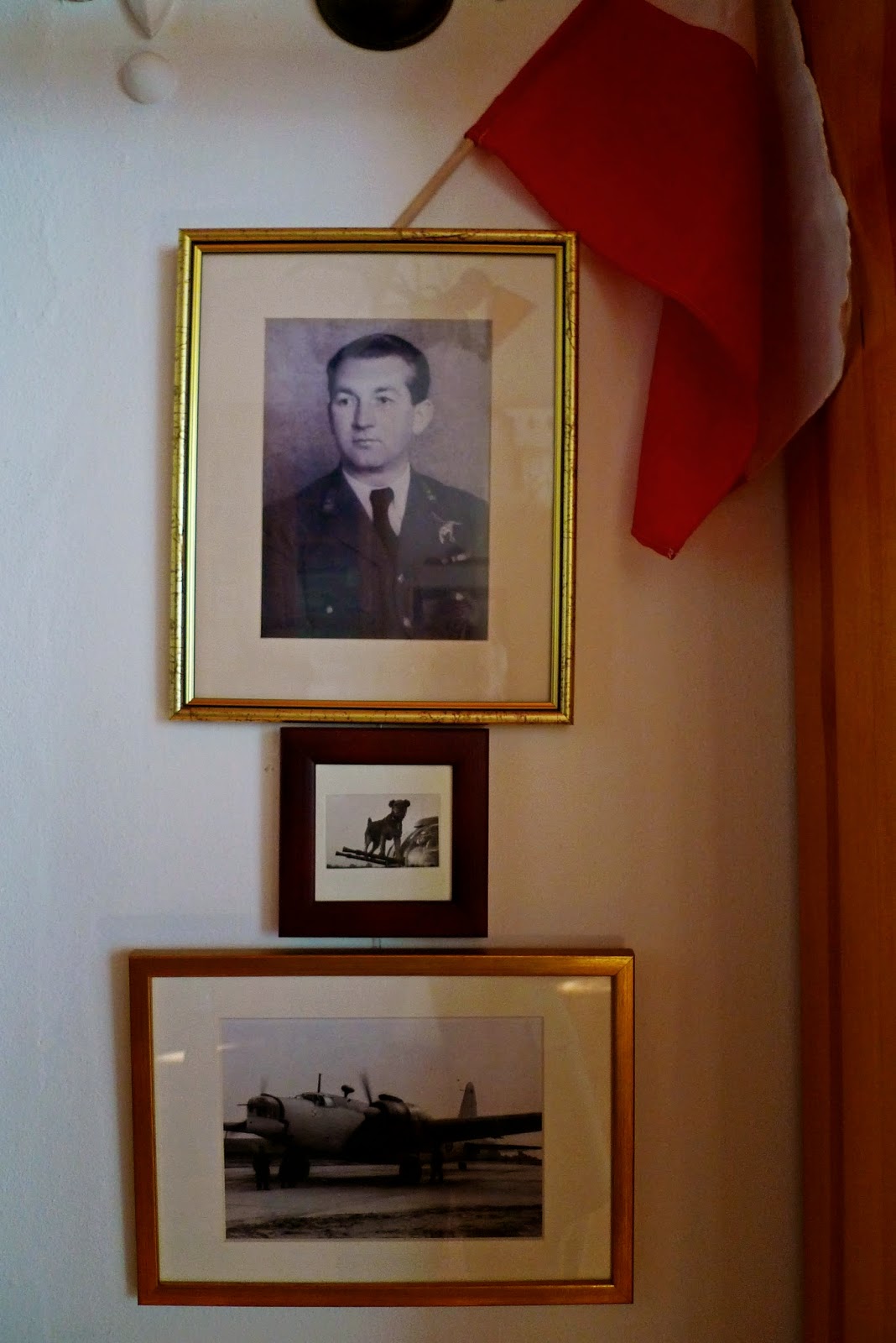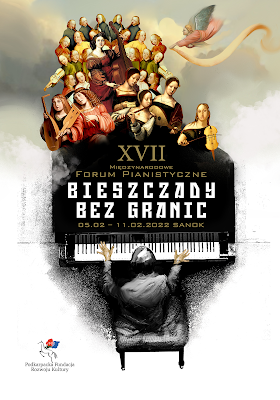Christmas Concert by the Karski Quartet, Somianka Manor, Poland - Sunday, December 17th 2023 at 2.30pm
 | ||
Somianka Manor
|
The mansion (referred to by the owner Pawel Esse amusingly as 'my little cottage') has an interesting history. It was designed in the first half of the nineteenth century (around 1833) on the foundations of an old convent by the architect Adam Idźkowski. He was the architect of the reconstruction the Cathedral of St. John in Warsaw built in the English Gothic style.
The dwór is situated on a high cliff and surrounded by a picturesque landscaped park laid out in the nineteenth century. Between the wars the property extended over 2000 hectares, including 800 hectares of forest. After the war it performed the functions of a police station, a kindergarten and a school. Somianka is one of the few manors that have not been transformed into a hotel. Pawel's superb red 4.2 Series II E-type Jaguar Coupe brought back fond memories of classic car visits to Somianka in the past.
Official Website: https://somiankadwor.pl/
This concert (the venue is a perfect musical break away from urban ugliness) was arranged by the Julian Cochran Foundation (Cochran is a fine Australian composer). The Foundation encourages musical and cultural innovation among young musicians in unusual spaces. It was also sponsored by MERITA (Le Dimore del Quartetto - Milan, Italy), an award winning online and offline platform that encourages string quartets among young musicians and promotes European cultural heritage.
Szymon Laks- String Quartet No.3 (2nd movement)
Grażyna Bacewicz - String Quartet No.4 (1st and 2nd movements)
Vivaldi Four Seasons 2nd movement (Winter) - with their deep feeling for Nature
Danish String Quartet
Pieces from their 'Wood Works' Album
This Danish quartet have a passion for Nordic folk music
Jässpodspolska
Ack Varmeland du Sköna
Old Reinlender from Sonndala
Anton Dvorak String Quartet (4th movement)
Szymon Laks - String Quartet No.3 (1st and 4th movements)
Assorted Christmas Carols
This was a particularly moving, unique, intimate concert for a winter evening at Somianka, a village some 60 kms from Warsaw. The quartet play with great musicality, intensity, energy and commitment. Their musical communication with each other and the audience is rare, organic and symbiotic. Their musical spontaneity and depth of emotional sensibility is striking.
The variety of music in their
programme was inspiring from the very outset. I always learn something new
musically at such significant concerts. Variety in programming maintains audience attention and interest. Young musicians planning concerts should remember the audience require listening stamina also!
This was certainly to be no conventional chamber music recital.
The audience were initially addressed in an anteroom and then led by members of the quartet humming harmonically with perfect pitch from the cold into a warm, firelit interior salon, the perfect size and acoustic for the intimacy of a string quartet and this repertoire.
The music ranged from energetically executed traditional Nordic folk songs, affecting Polish Christmas carols through to the fine modern music of the almost unique Polish female composer Grażyna Bacewicz (1909-1969), whose compositions are undergoing a long deserved musical renaissance at present.
 |
| Grażyna Bacewicz (1909-1969) |
This remarkable Polish composer and violinist was born on February 5th, 1909, in Łódź. She is only the second Polish female composer to have achieved national and international recognition, the first being Maria Szymanowska in the early 19th century. Having first learnt to play the piano and violin with her father, Vincas Bacevičius (Wincenty Bacewicz), Bacewicz continued her musical education in 1919 at Helena Kijenska-Dobkiewiczowa's Musical Conservatory in Łódź.
There, she studied piano, violin, and music theory. Her family moved to Warsaw in 1923, and in 1924 she enrolled at the Warsaw Conservatory to study composition graduating in 1932 with diplomas in violin and composition. Thanks to the generosity of Ignacy Jan Paderewski, she received a grant that same year to study composition at the Ecole Normale de Musique in Paris. She studied under Nadia Boulanger from 1932 to 1933, as well as through private violin lessons with Henri Touret. She would return to Paris later in 1934 to study under the Hungarian violinist Carl Flesch.
Bacewicz's first solo success came in 1935, with her first mention at the 1st Henryk Wieniawski International Violin Competition in Warsaw. From 1936 to 1938 she played first violin at the Warsaw Polish Radio Orchestra led by Grzegorz Fitelberg, where she developed her knowledge of instrumentation. Bacewicz played a number of concerts before World War II, for which she visited Lithuania, France, Spain and other countries, often appearing with her brother, the reputed pianist Kiejstut.
During the Nazi occupation she played clandestine concerts, as well as playing for the Main Relief Council. After the war she continued to play concerts up until 1953, giving recitals in Belgium, Czechoslovakia, the USSR, Romania, Hungary and France. Meanwhile, in 1945, she joined the National Conservatory (now the Academy of Music) in Łódź as a lecturer of music theory and a violin teacher. Throughout the 1950s she devoted herself almost exclusively to composing and teaching.
From 1966 till her death in 1969 she worked at the National Higher School of Music (now the Academy of Music) in Warsaw, where she led a composition class and was made professor in 1967. She also often sat on the juries of violin and composition competitions throughout Europe, including in Liège, Paris, Moscow, Naples, Budapest, Poznań and Warsaw.
In the 1960s, Bacewicz took up writing in addition to her music, completing several novels and short stories. None was published except for a volume of short stories entitled Znak szczególny/ The Distinguishing Mark.
Bacewicz's extremely rich body of work was recognized and honoured a number of times. Much of her music is impregnated with the resistance and violence of war. Her musical stature and remarkable compositions are undergoing something of a renaissance at present. (Culture.PL)
 |
| A charming portrait of Szymon Laks with his wife and son |
In 1941, the musician and composer Szymon Laks (1901-1983) was arrested and interned in a camp near Orleans. Deported in July 1942 to the German concentration camp Auschwitz-Birkenau (camp number 49543), he survived there for over two years. He was a copyist and bandmaster of the camp men's orchestra. In October 1944, he was transported to the Dachau camp (KL) , where he was liberated by the American army. He returned to Paris in May 1945. He described his camp experiences, especially his work in the camp orchestra, in the book Musiques d'un autre monde (Paris 194 7), and then in Gry oświęcimskie (London 1979, Auschwitz-Birkenau State Museum 1998 ).
The Dvorak and Vivaldi pieces were of course readily recognizable.
A most remarkable and uplifting recital during this particular Christmas.
* * * * * * * * * *
 |
| Christmas goodies |
Rather outstanding Polish white wine from Winnice Kojder was available after the concert which was another quality surprise for me (being rather a Bordeaux aficionado)!
As I am particularly interested in wartime aircraft (both the Great War and WW II) I spied in a corner of the library a small 'shrine' of photographs dedicated to an airman crowned with a Polish flag. I immediately asked Pawel what this was and its significance.
As is often the case with the extraordinary folk, a remarkable story of wartime valour demonstrated by a close relative was unfolded.
 |
| Colonel (1945) Jerzy Mieczysław Kranc and the squadron mascot (MM) |
I received this email from Pawel Esse which clarified the detail:
Colonel (1945) Jerzy Mieczysław Kranc was my great uncle from my father side, brother of my Grandma.
First he was Wing Commander and then from 1944 a Squadron Commander of 304 (Polish bomber squadron). Active in many actions (famous for hunting the “German” Wellington. This aircraft, which was taken over by Germans, was known for attacking English crews returning after action to their bases in England).
As attachment please find a
few pictures from our family archive, among them two with wreck of ‘Sonia’ with
General Sikorski and two others from Poland in 1939 where he was in 2nd Squadron
in Kraków.
 |
| Colonel (1945) Jerzy Mieczysław Kranc (far right) |
 |
| Colonel (1945) Jerzy Mieczysław Kranc |
.jpg) |
| General Sikorski inspecting the extensive damage to the Wellington bomber named 'S' for 'Sonia' Colonel (1945) Jerzy Mieczysław Kranc recieved the Virtuti Militari http://listakrzystka.pl/en/?p=139880 |












Comments
Post a Comment